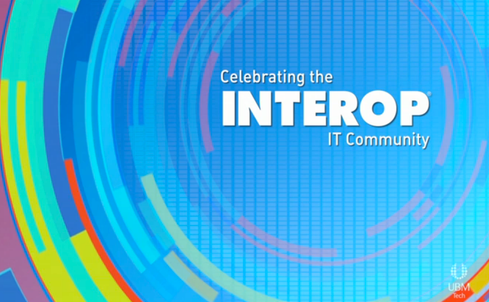Oracle Becomes 'Kinder, Gentler,' President Hurd Claims
Oracle president Mark Hurd says new account teams with single-contact accountability are improving customer satisfaction, but he has no kind words for SAP.

Interop 2014: 8 Hot Technologies
Interop 2014: 8 Hot Technologies (Click image for larger view and slideshow.)
Oracle president Mark Hurd threw verbal rose petals at the feet of customers during his keynote talk at the InformationWeek Conference on Tuesday, while giving competitors SAP and Rimini Street the thorns.
Hurd hit on Oracle's cloud and engineered systems strengths, as is typical in his public appearances, but he also broke new ground in response to questions from InformationWeek editor-in-chief Rob Preston on the difficulty Oracle customers have in dealing with just one person, due to the company's 80-plus acquisitions over the past six years.
"The customer-facing piece is the biggest issue that we've had, but we believe that the people who represent Oracle have to know their products," Hurd said. "When I got to the company three or four years ago, we didn't have single accountability for accounts, but we've put in nearly 300 [account directors] from almost nil three years ago."
[For more about this year's top IT organizations, read InformationWeek Elite 100: Winning Digital Strategies.]
This new role is part of a team that includes the account director, an architect, an executive sponsor (who reports to Hurd or a level below him), and a support director.
"Where we've put these teams in place, our customer satisfaction is very high -- typically 10 points higher and ahead of industry-average customer satisfaction. We're trying to roll that model out as quickly as we can, but we have to find the right talent."
Progress has been "70, 80, 90 accounts per year," Hurd said, and he noted that roughly 43% of IT is purchased by the top 200 customers, 48% by the top 500 customers, and 53% by the top 2,000 customers, "so you can get the rhythm of where we're headed."
As for changing what InformationWeek's Preston described as Oracle's "tough, sales-oriented culture," Hurd pushed back a bit, saying he's trying to lead the way toward a "kinder, gentler" Oracle. "I think that some of these characterizations of our reputation are broad generalizations," he said. But rather than just being about being nice to do business with, Hurd added, "I'm more interested in customers getting the best of everything that Oracle can offer. We can help you save money, we can help you innovate, and we want to bring all of our capabilities to the table. The issue that's first at hand for us now is to get our people in a position where we can help you strategically."
Competitors get thorns
Asked about various competitive threats, Hurd talked up Oracle's multi-tenant and coming in-memory capabilities in Oracle Database 12c, and he disparaged the potential impact of SAP customers switching to that vendor's Hana in-memory platform. "As a percent of our overall database business, a very tiny percent of it would sit below an SAP ERP," Hurd said, adding an estimate of "less than 5%."
That figure sounds surprisingly low, given that SAP has hundreds of thousands of customers, with some 60% estimated to be using Oracle database.
Hurd turned the tables on SAP, questioning its strategy of going after the database business, since enterprise applications -- SAP's core business -- are moving toward cloud computing. "The opportunity for us to become the leading applications company in the world is based on the fact that we've become the leader in the cloud. If I was the other company, I'd be very focused on getting my applications to the cloud. If you don't, strategically in years to come it's going to be tough times."
Citing Oracle's own six-year journey to create Oracle Fusion applications for cloud delivery, Hurd said, "It's 2020 [before SAP can rewrite its core applications for cloud delivery]. That's where the battle is headed, as opposed to a battle in the stack and competing with us in the database business."
Hurd neglected to mention SAP's cloud-based edge apps and its acquisitions, like SuccessFactors, Ariba, and Hybris. There's also SAP's strategy of hosting current Business Suite applications for customers with managed services. But it's true that there's no SAP-equivalent, next-generation app suite akin to Oracle Fusion Applications.
In another shot at a competitor, Hurd bristled at a question about third-party support providers and Oracle financial stats that show it added $932 million in software license update and support revenues in 2013 while spending approximately $50 million less in operating expenses on that category, year over year.
Questioning the ability of third-party vendors to offer software patches, Hurd said, "There are court cases on this right now," alluding to the suit Oracle has pending against Rimini Street. "When you pay Oracle for support, it covers subscription and support, so you get the right to future versions of the software as part of that. You would have to include our R&D number, as well as look at the cost of support, to get an integrated view of that ecosystem."
Hurd closed his comments by commiserating with CIOs. "I know there's a lot of pressure on you, and being CIO is the hardest job in the world," he said. "You have to have one foot in the business world and one foot in the technology world. Whether it comes off soft or nice, it's more important that we come help you with ideas, and that's a job we have to get better at every day."
IBM, Microsoft, Oracle, and SAP are fighting to become your in-memory technology provider. Do you really need the speed? Get the digital In-Memory Databases issue of InformationWeek today.
About the Author
You May Also Like






